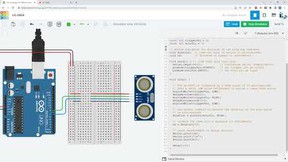Quality Education, Elementary School Science Projects (5 results)
The United Nations Sustainable Development Goals (UNSDGs) are a blueprint to achieve a better and more sustainable future for all.
These projects explore topics key to Quality Education: Ensure inclusive and equitable quality education and promote lifelong learning opportunities for all.
These projects explore topics key to Quality Education: Ensure inclusive and equitable quality education and promote lifelong learning opportunities for all.
Science Buddies' elementary school science projects are the perfect way for elementary school students to have fun exploring science, technology, engineering, and math (STEM). Our elementary school projects are written and tested by scientists and are specifically created for use by students in the elementary school grades. Students can choose to follow the science experiment as written or put their own spin on the project.
For a personalized list of science projects, elementary schoolers can use the Science Buddies Topic Selection Wizard. The wizard asks students to respond to a series of simple statements and then uses their answers to recommend age-appropriate projects that fit their interests.
|
Select a resource
Coding Projects
Sort by
|
Have you ever had to remember a long list of planets or the state capitals? These kinds of lists are full of interesting facts, but they can be hard to remember, especially for tests. What could you do to remember the list better? In this human behavior science fair project, you will learn about a memory technique called mnemonics (pronounced nuh-MAH-nicks) and investigate whether using mnemonics can help you and your friends remember lists of words.
Read more
I am sure you like your teacher, and are quite the teacher's pet! But how do other students in your school feel about their teacher? Will younger students like their teacher more than older students? What other trends can you investigate?
Read more
New
Can AI understand human language? In the future, AI could aid in emergency interpretive service in the hospital when translators aren't available. But can current AI algorithms understand non-verbal languages like sign language? In this science project, you will test whether AI can learn sign language gestures or phrases to see if it can be used for interpretation.
Read more
What motivates you to clean your room/mow the lawn/wash the dishes (substitute your own responsibility at home)? What motivates you to do something you really like to do? Or think about this: you'd like to get your younger brother or sister to do you a favor. What strategy works best? Here is a project designed to test which incentive strategy works best for encouraging small children to complete a task.
Read more
Can computer games be used to educate? Pick a game that incorporates educational material. There are a variety of educational computer games on the market in the areas of math, history, science, and language, as well as many simpler versions free on the Internet. Make up a test based on the subject area covered by the computer game. Have your volunteers take the test before and after playing the game. Does playing the computer game improve people's score on the test?
Read more
Have you ever taken notes from the chalkboard during class and not noticed what was going on around you? Or have you ever been so focused on a task that you haven't seen other people around you? In both of these cases, you were paying attention, but you were seeing without seeing! This is called inattentional blindness and it's the topic that you will investigate in this human behavior science fair project. If you are interested in how the human brains perceives information, then this might…
Read more
|






